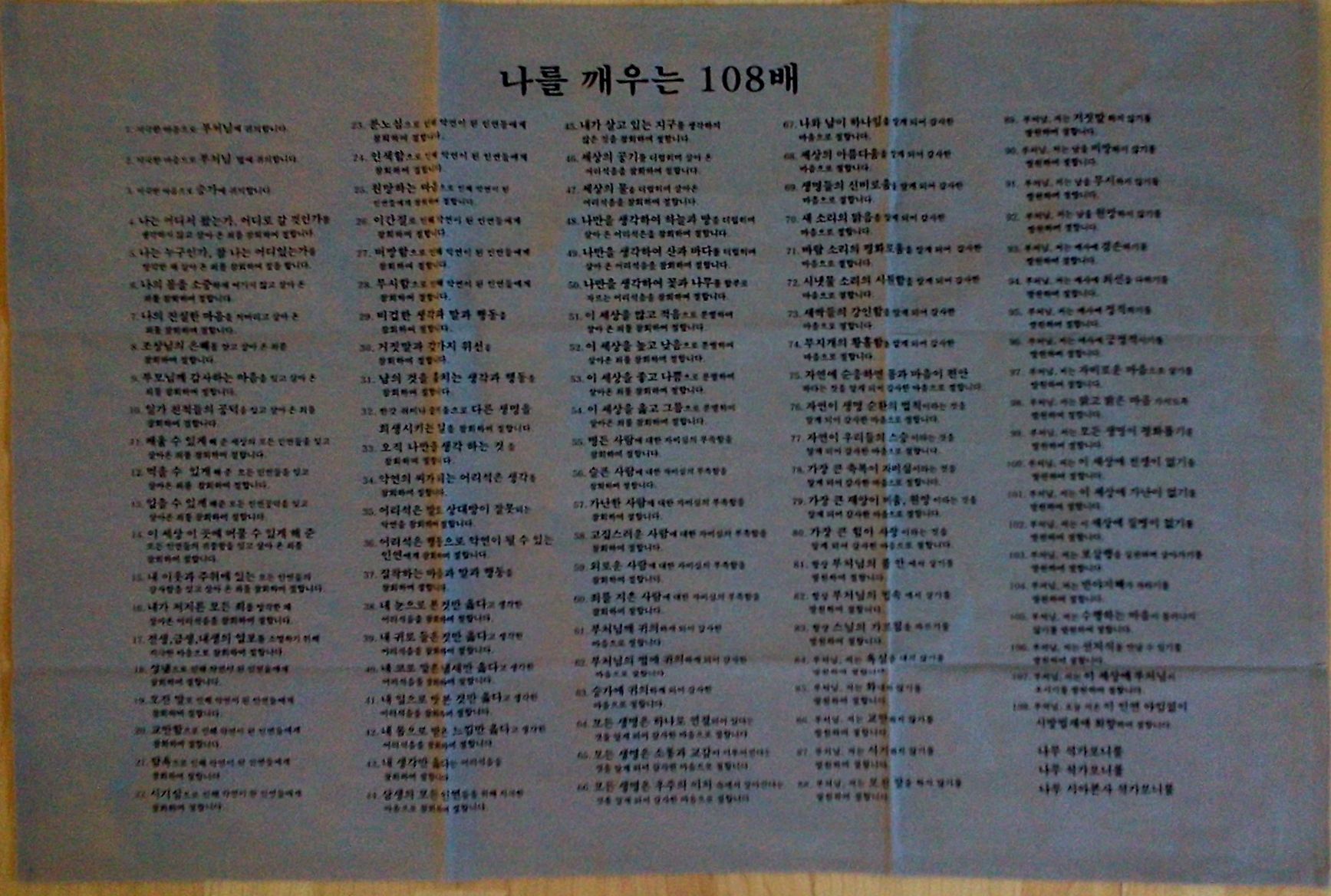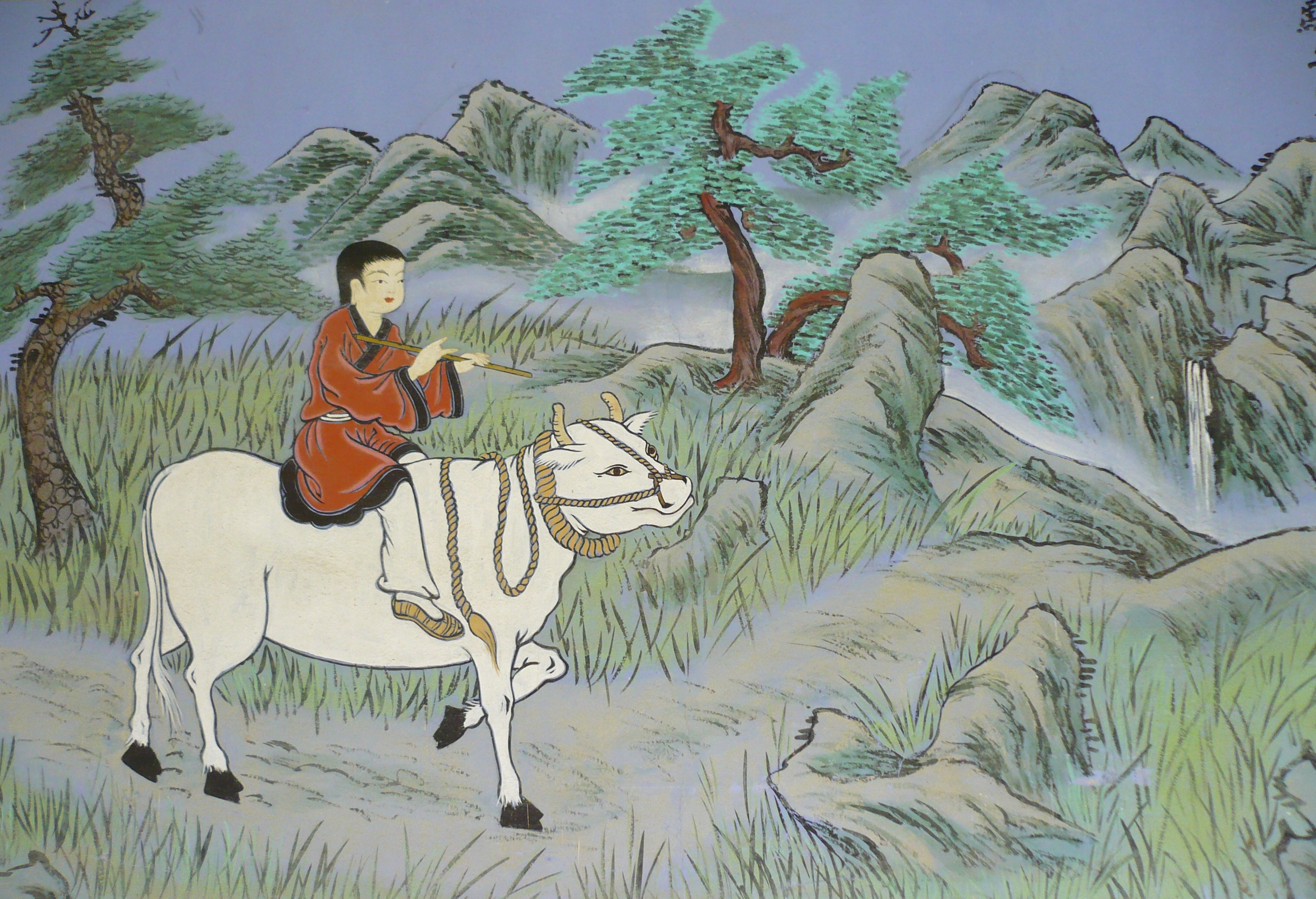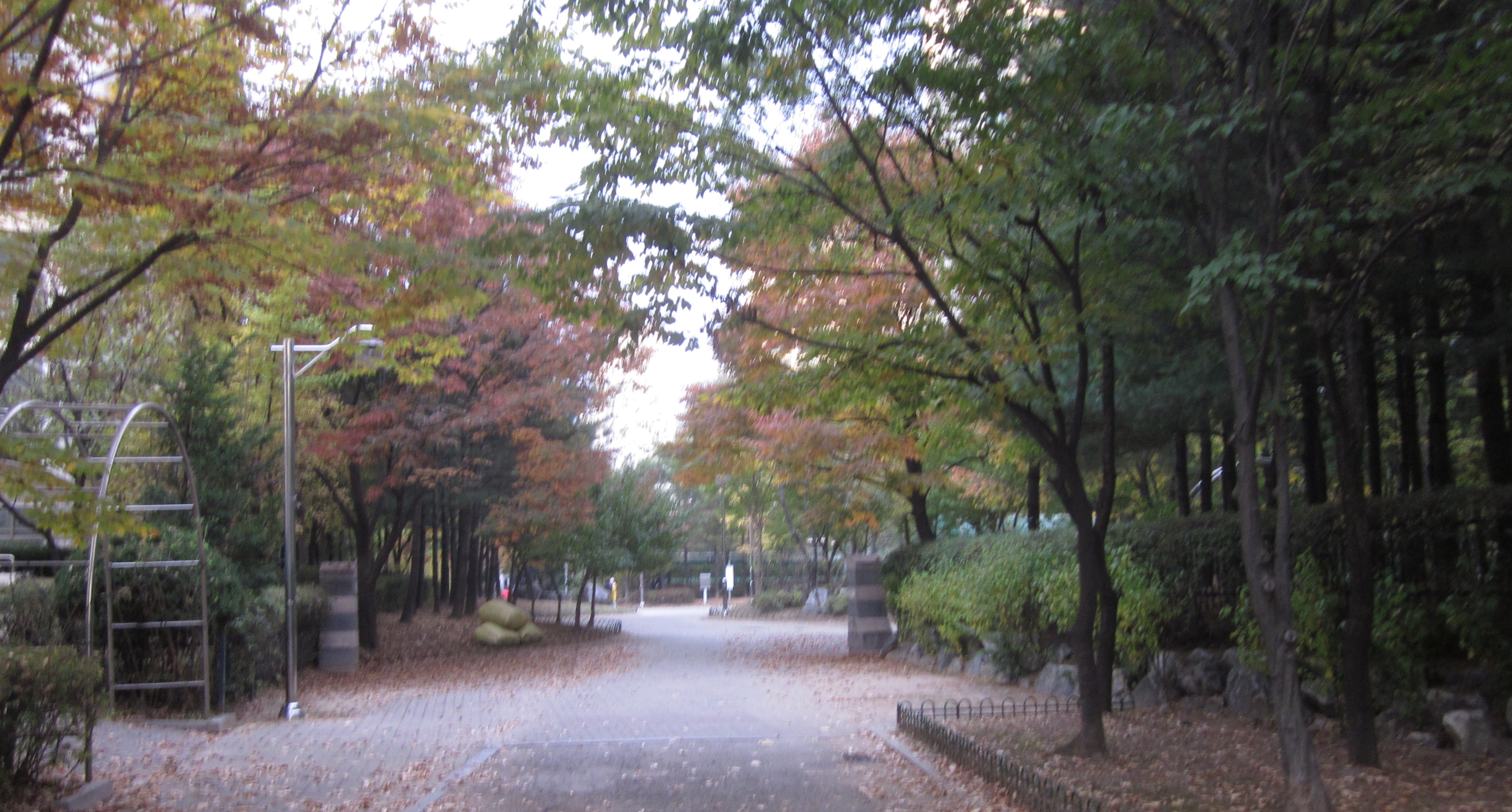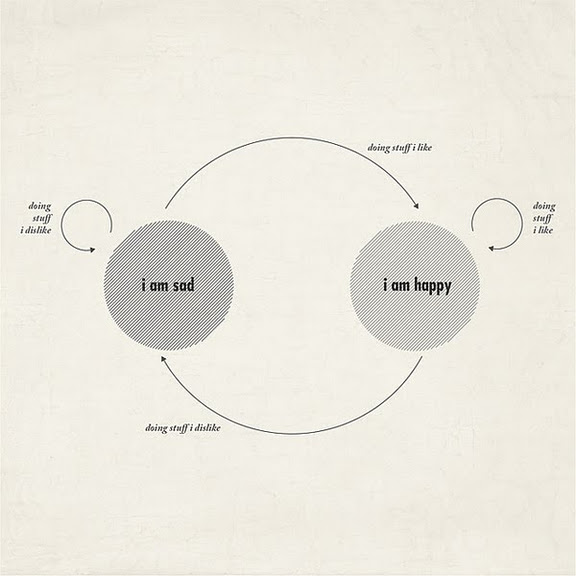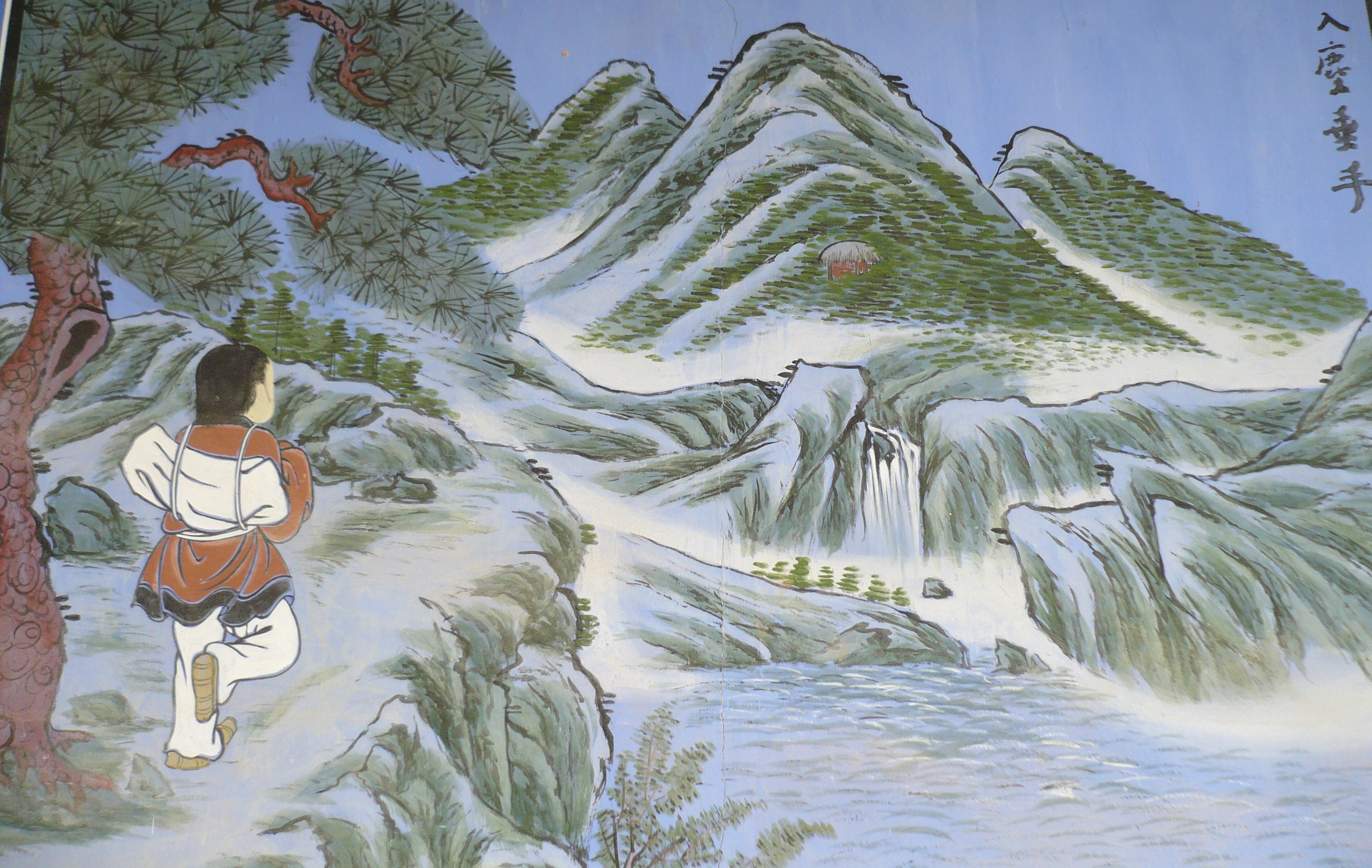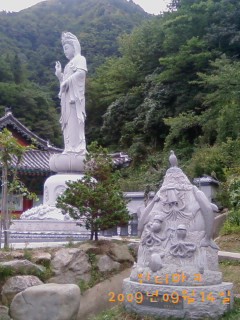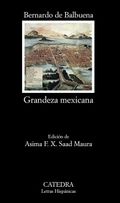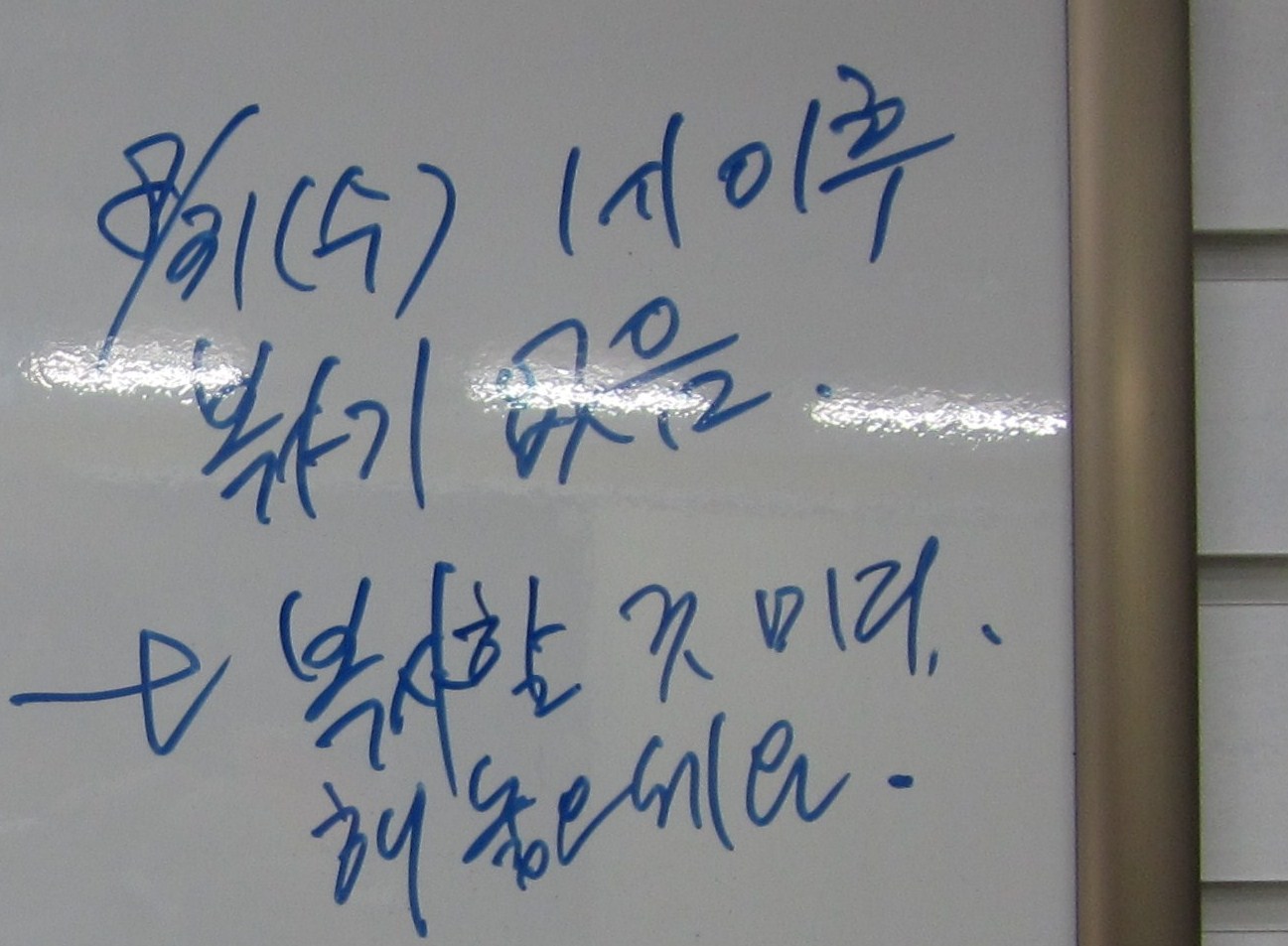When I was at 보문사 [bomun temple] on Sunday, in the shop beside the temple I found something I had always wondered if existed but had never actually seen before: an “on cloth” rendering of the 108 Buddhist affirmations that I translated (attempted to translate) in 2010~11.
So I bought one – I seem to have developed a habit of collecting these cheap little cloth renderings of aphorisms and phrases and excerpts of sacred writings.
I haven’t analyzed it too closely, but I think they’re exactly the same list. I still have no idea if these affirmations are uniquely Korean in origin or if they are translations of some older Chinese or Gandharan or Pali tradition.
After yesterday morning’s session at the hospital, I felt really tired. I napped for a short time, then met my friend Mr Kwon for lunch while Andrew and Hollye did their own touristic trip into Seoul. After lunch I went to work but there wasn’t much for me to do there. Given I wasn’t feeling very good, that was a good thing, so by about 6 pm I had come home. Andrew and Hollye came over and we watched a movie and I went to sleep.
It felt like a useless day. I felt tired and achey and grumpy all day. I struggle with all these worries about the radiation: is that twinge of toothache a symptom? is that pain in my neck a symptom? how about the headache? Some no doubt are, others are just hypochondria.

